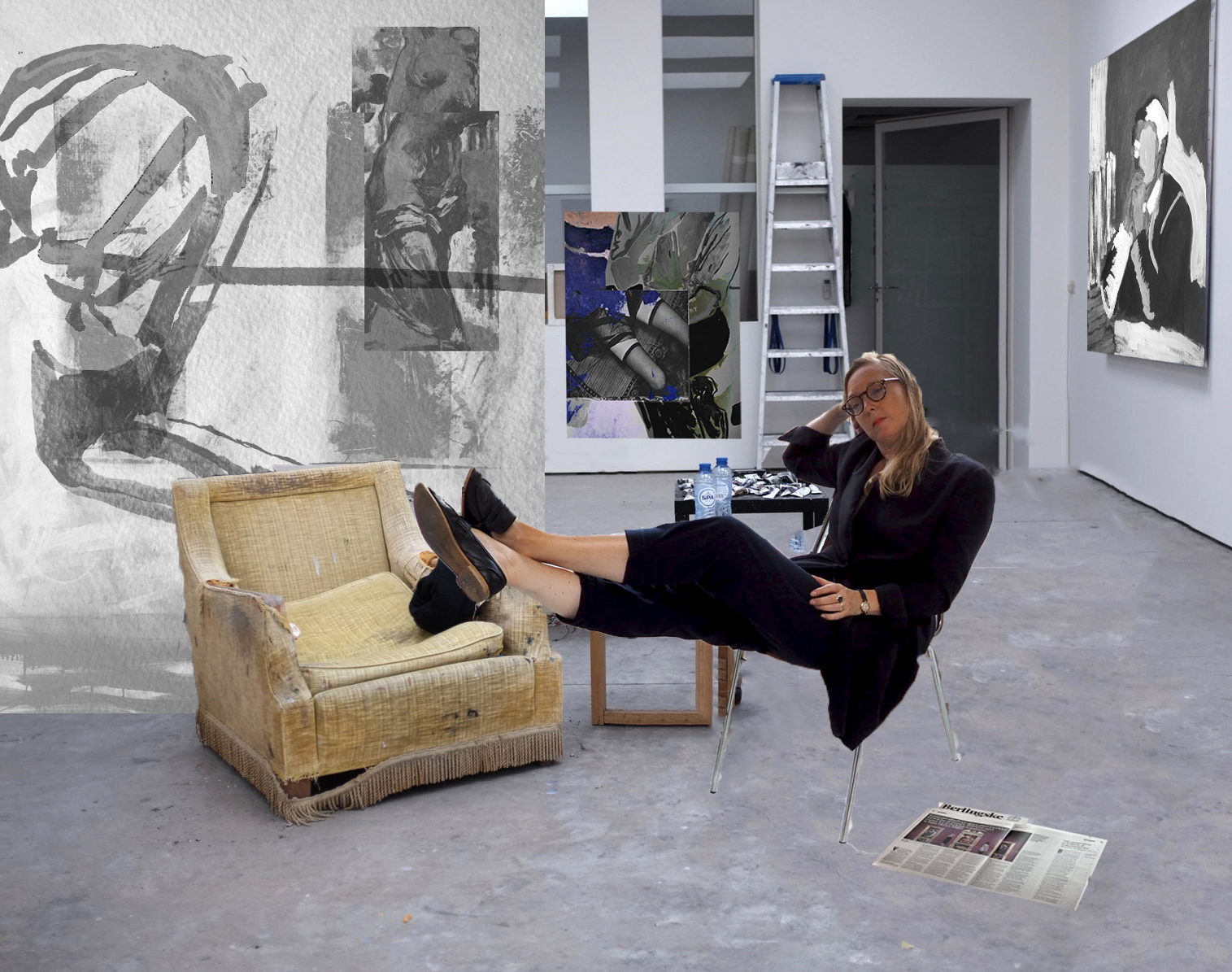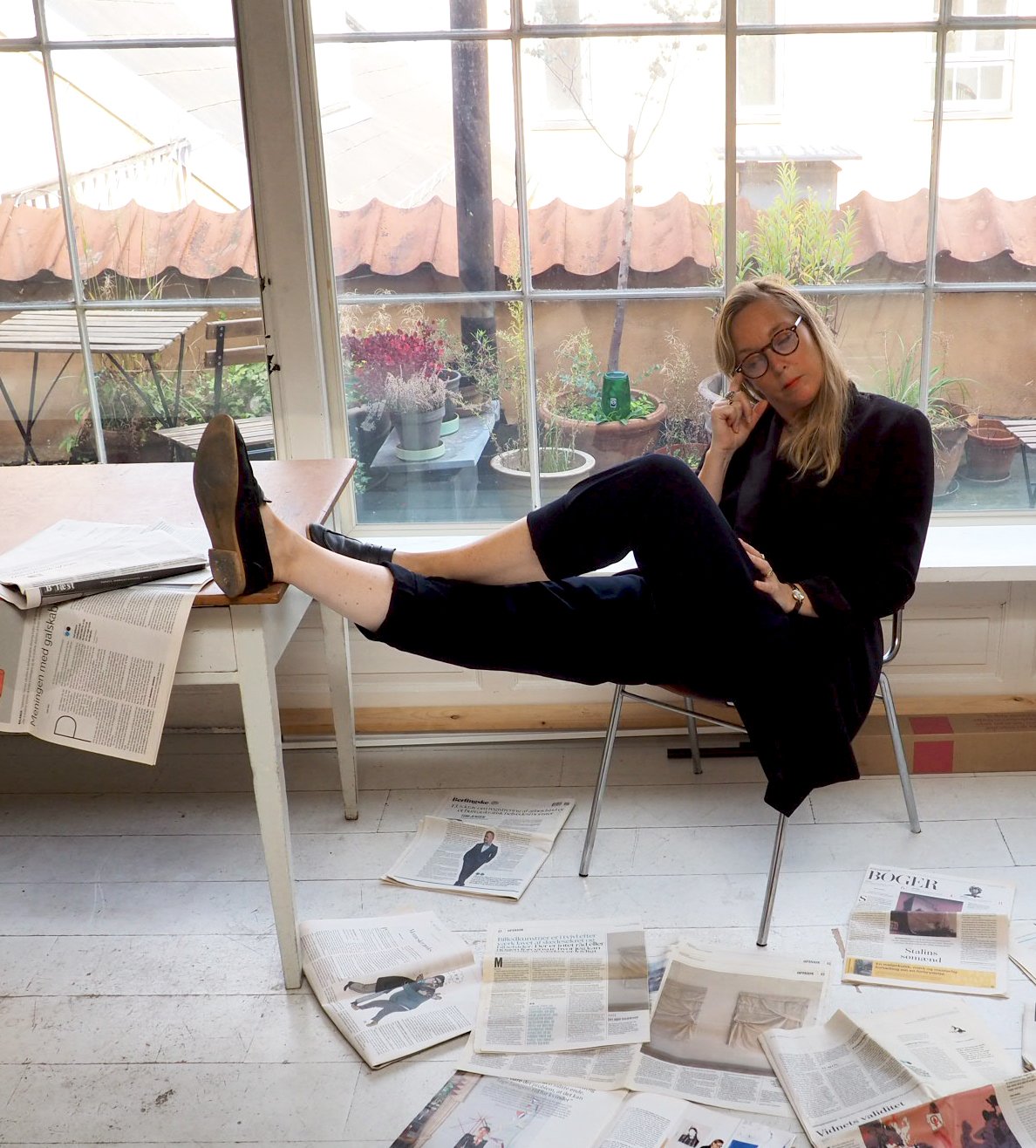

Over the past two decades, Augusta has exhibited extensively at Danish institutions, including: Viborg Kunsthal, Charlottenborg Kunsthal, Museet for Samtidskunst, Kunsthal Rønnebæksholm, Sophienholm Kunsthal and Brandts. Her work has also been exhibited at international institutions, for example: REMAP4 Contemporary Art Festival, Athens Greece; Fundació Antoni Tàpies, Spain; Tou Scene, Stavanger, Norway; Akademie der Künste, Berlin, Germany; Center for Contemporary Art, Amsterdam, Netherlands; Institut du Monde Arabe, Paris, France; The Danish Institute in Athens, Greece; Tallinna Kunstihoone, Estonia; Michael Cacoyannis Foundation, Athens, Greece.
Augusta’s artwork features in national Danish collections: for example, Horsens Kunstmuseum, Denmark, Randers Kunstmuseum, Denmark, the Danish Art Council, Denmark and The Danish Parliament, Denmark.
Augusta is educated in London, UK between 2003-2007. Between 2007 and 2016, after the education, Augusta lived like a nomad, years in Venice, Rome, Athens, Paris. An ‘art pilgrimage’, visiting the works of the masters of European art, researching religious iconography and exploring the history of Greek Antiquity.
From 2014 to 2016, Augusta founded, curated and ran MAISON d’ART CONTEMPORAIN ATHÈNES (MACA) in Athens, Greece.
Augusta promotes and researches about artworks by women artists and uses the instagram profile @womenpainters as a memory board.
@ PUBLIC, NATIONAL OR MAJOR PRIVATE ART COLLECTIONS
The Danish Art Council, Denmark
Horsens Kunstmuseum, Denmark
Randers Kunstmuseum, Denmark
The Danish Parliament, Denmark
Dimitris Daskalopoulou, Greece
Collezione Viafarini, Italy
Augusta is also a passionate art critic and lecturer, and a politically engaged writer on gender discrimination issues in the world of contemporary art and on the politics of art. Augusta interviewed the Danish Minister of Culture in 2022 and again in 2023 regarding the gender gap in the practice og the state-supported museums of Denmark. Her articles have been published in Dagbladet Information, Politiken, Magasinet Kunst, CHART Publication, Kulturmonitor, Børsen, Weekendavisen and Jyllands-Posten.
Between 2022-2023 Augusta had a monthly column at Kunsten.nu .
Follow my writing in English:
https://augustaatla.substack.com
Augusta gives artist talks and lectures at universities and art institutions, including the Royal Danish Academy of Fine Arts in Copenhagen, Princeton University, and the Accademia di Belli Arte di Venezia, just to name but a few.
Augusta has previously exhibited at the galleries: Gallery Specta (DK), David Risley Gallery (DK), Avlskarl Gallery (DK), Format Artspace (DK), CAN Gallery (GR), Charlotte Fogh Gallery (DK), Banja Rathnov Gallery (DK), Change and Partner Gallery (IT), AD Gallery (GR), LMN Gallery (NO).
Augusta was granted art awards by the Danish Art Council in 2011 and 2012 and residencies at the National Workshops of Copenhagen in 2006, 2008, 2012, 2013, 2016 and 2022. Atla has also been supported by Danish private arts foundations and Danish institutions and embassies.
Augusta received an Award of Excellence from the Fine Art faculty of Goldsmiths, University of London in 2006 and the Horsens Art Museum Art Award in 2007.
ABOUT MY ARTWORK:
Creating art is my natural way of existing in the world – making art is my arch between everyday life and the mystery.
To paint, to compose images and to invent objects, performances, talks and installations is for me a way to dwell on the inner emotional life and collective consciousness, the body’s perceptions, and our cultural history.
Throughout history, feminist work and gender studies have not been allowed to change us and our art history to the degree that they were originally meant to. Instead of seeing women as ‘the other’, who attempt to disrupt art history with their artistic negotiations of their conditions of difference (historical, social, cultural), I see a future open-ended, in which art theory and its archiving is in urgent need of a total re-arrangement and re-thinking – and new works of art that tackles a fresh and new understanding on our history.
My work maps explore a new land of the future, in which gender equality, the history of gender and gender fluidity are a matter of course.
Erasing is an important point and a recurrent theme in my practice and individual works. To erase is my critical, formal and emotional painting-strategy and a recurrent theme in my practice and individual works. I paint motifs by removing elements.
I also produce photography in the darkroom, done by cutting directly in the analogue black-and-white film, with double exposure and overhead prints, and furthermore using the technique of photogram. The works are all exposed differently, meaning every work is unique and I call them ‘light collages’. These photo works constitute ‘the masters’ for my paintings.



